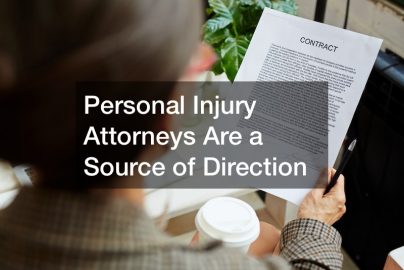
One of the most common things we hear from workers compensation clients is, “I wish I’d known the right way to approach this before I was injured at work.”
Knowing what to do if you are injured at work is something that you don’t know that you need to know until you are injured at work. It’s not something that you can plan for, and you often aren’t prepared; knowing the right actions to take immediately after incurring an injuring on the job is important for having a successful workers compensation claim. If you aren’t confident you’d know what to do if injured at work, please stand by for our list of important steps to take before filing a workers comp claim.
Four Important Things to Know if You Are Injured On the Job
- Record everything.
As soon as you are injured, take record of every detail of the situation. Photograph the scene of the injury. Pay special attention to any details that might have had an impact on the extent of your injury, such as the weather conditions. Collect contact information from any witnesses. Immediately write down a timeline of the events that led to the injury, while it is still fresh in your memory. Should you need to defend your workers compensation claim, any records you have of the circumstances can be used as evidence to support your cause.In the days and weeks following the injury, you will likely have frequent interaction with your employer, medical professionals, insurance companies, and lawyers regarding the accident. Make sure every conversation is conducted via email, so that you have a time-stamped record of it.
- Seek help immediately.
Getting medical attention after sustaining an injury at work is important for your own physical well-being. However, it’s also an important step in your workers compensation claim because having medical records right after you were hurt helps you establish that extent of the injury. As we mentioned in the last point, the more documentation you have on your injury, the better.It also supports the fact that you took every action you had available to minimize the injury. If you don’t get medical care immediately after your injury, sometimes workers comp insurance companies will claim that the extent of your injury is in part a result of your negligence. This can impact the outcome of your claim.
- Follow your employer’s injury process.
It is critical that you dot every “i” and cross every “t” while filing a workers compensation claim. You’d be surprised how often a claim is unsuccessful, not due to the injury not being legitimate, but because the paperwork wasn’t filed properly. Your employer will likely have a due process for handling workplace injuries. You’ll probably need to file an incident report with your immediate supervisor and Human Resources. Take care to meet every guideline your employer has. Make copies of any reports you submit for your own records. If any action in the incident report process isn’t documented on paper (perhaps you need to verbally inform your boss of the incident), make sure you do it via email. Once again, document, document, document. - Hire a workers comp lawyer right away.
Even if your employer seems to be cooperating with your workers compensation claim, it is important to have an expert on your team who is working for your best interest. Once you have a lawyer, all communications regarding your injury with insurance companies and your employer should go through your attorney. While this is most likely your first time navigating the workers comp process, it is not the first time that your workers comp insurance company is doing it. No matter how friendly they seem, their end goal is to have as little on the check they have to write as possible. Your workers comp attorney has also gone to bat for workers comp claimants hundreds of times, they’ll know how to handle each step in your best interest.
Being injured at work can be overwhelming. Not only do you have to cope with your injuries, if your injury prevents you from working, it can create financial difficulties. Knowing these steps will help you have the best outcome in your workers comp claim.
